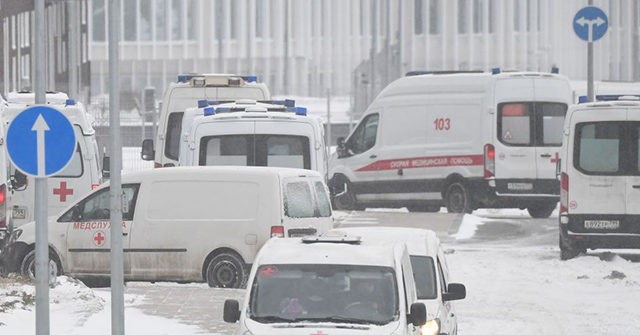A top doctor at the hospital in Omsk, Russia, that treated Kremlin critic Alexei Navalny immediately after his poisoning last summer has died, the hospital said Thursday.
“Sergei Maksimishin, who was the deputy chief physician for anesthesiology and resuscitation at Omsk emergency hospital No. 1, died in his ward from a heart attack,” the press service of the Omsk regional health ministry told Russian news site Open Media on February 4. Maksimishin was 55
“There are no special reasons. The man was sick, worried about his relatives, he buried his parents this year. He died at work, in his intensive care unit, where he worked. He was in the hospital, he was placed in the intensive care unit and he died there,” the health ministry’s spokeswoman, Galina Nazarova, told Open Media. The Omsk regional health ministry noted that the cause of Maksimishin’s death was “not coronavirus.”
Maximishin worked at the hospital for 28 years and saved thousands of lives, the Omsk region minister of health said in a statement.
“He brought people back to full reality. We will miss Dr. Maximishin very much. He left too early and because of this the pain of loss is especially bitter,” Omsk Health Minister Alexander Murakhovsky said.
Navalny fell ill on a Russian domestic flight from Tomsk, Siberia, to Moscow on August 20, 2020. His plane made an emergency landing in Omsk, where he was admitted to the Omsk emergency hospital No. 1’s toxicology unit. Navalny was placed in a medically induced coma and airlifted to a German hospital in Berlin two days later. He spent the next five months recovering there from what his German doctors said was poisoning from exposure to the Soviet-era nerve agent Novichok. Navalny has accused the Kremlin of ordering his poisoning, which the Russian government denies.
The chief toxicologist at the Omsk emergency hospital No. 1 “who was the first to treat Navalny, Alexander Sabaev, said he initially suspected poisoning and that he and his colleagues treated him accordingly,” Reuters reported in September.
“Navalny was put on a ventilator and into an induced coma and given the emergency drug atropine,” Sabaev said. This treatment protocol “is in line with usual treatments of Novichok victims,” a medical source who said he was familiar with Navalny’s German test results told Reuters. Atropine is among the first treatments used to counteract the immediate effects of Novichok, which include slowing heart rate, fluid filling the lungs, and nerve damage.
Sabaev said he and his fellow doctors at the Omsk hospital changed their minds on the suspected poisoning after Navalny’s test results were returned six hours later showing no traces of poison in his system.
“As a toxicologist I am sure. There was no Novichok there,” Sabaev said.
Navalny likely suffered from “a metabolic disorder” as opposed to a poisoning, Sabaev said, adding that Navalny’s “blood sugar levels were four times higher than normal and that he had pancreatic problems.”
Reuters noted that it had interviewed “other Omsk-based medical sources” who disputed Sabaev’s “metabolic disorder” diagnosis.
Moscow police arrested Navalny upon his return to Russia on January 17 for violating probation terms of a previous sentence. Authorities sentenced Navalny to nearly three years in prison for the violation on February 3.





